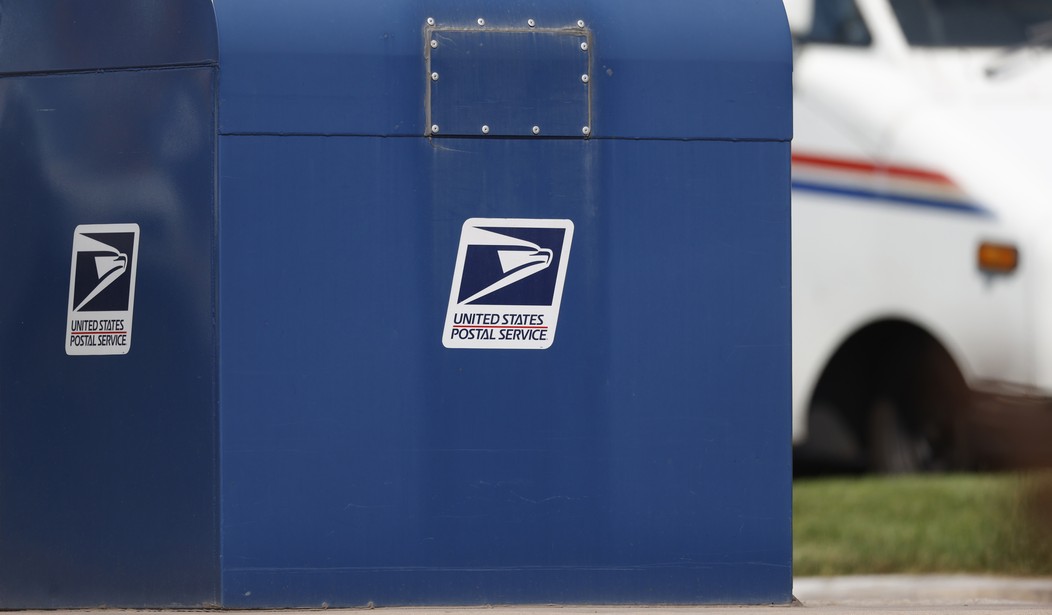The U.S. Postal Service is the only package delivery service that continues to deliver to every address in the nation. Without its dependable delivery of life-saving medications, essential goods and other necessities to any and every door throughout the pandemic, many Americans would have had nowhere else to turn but to a private carrier like UPS, which was all too willing to hike up surcharges at the height of the pandemic.
Supply chain strains, store closures and unprecedented demand for delivery services threw previous industry projections to the wind this past year. Despite these factors, the U.S. Postal Service was heralded as the most favorable U.S. institution by the public -- regardless of party affiliation -- garnering support from 90% of Americans.
In alignment with the vast majority of people they represent, members of Congress from both parties have banded together in support of the Postal Service. Republicans and Democrats in both the House and the Senate moved bills forward that include financial relief and reform provisions to reinforce the essential role the Postal Service plays in ensuring fair competition and affordable delivery services for all Americans.
Over 100 years ago, Congress mandated that the Postal Service provide a competitive package delivery service to protect Americans in rural and remote areas of the country who were being exploited by private delivery companies. And since then, the U.S. Postal Service has continued to provide integrated delivery services of mail and packages. Now, thanks to the2021 Postal Reform Act and the bipartisan companion bill in the Senate, the longstanding utilization of the integrated delivery network stands to be codified into law.
Recommended
Private, legacy carriers, meanwhile, are opposed to these bipartisan reform measures that would reaffirm that the Postal Service should maintain an integrated delivery network 6 days a week and leverage the network efficiencies it generates by delivering mail and packages together. In FY2020, the U.S. Postal Service’s package delivery business contributed $11 billion above costs to the organization’s bottom line thanks largely to its growing and profitable package delivery business. Forcing the U.S. Postal Service to operate parallel, duplicative delivery networks for packages and mail would reduce the effectiveness of the U.S. Postal Service — while enriching private carriers and providing them with the cover to raise their own prices. Such a move could benefit private carriers, but it would ultimately hurt American consumers and businesses that rely on affordable delivery services.
Opposition to fair competition and affordable delivery services isn’t new. Private carriers like UPS are actively lobbying Congress to raise the Postal Service’s prices so that they, in turn, can raise their own prices. These lobbyists point to a 2017 Citigroup analysis that actually reveals how raising USPS prices would create a $15-19 billion “revenue opportunity” for private carriers like UPS. Some companies are already making moves. Recently, after recording record profits from turning away deliveries from less profitable customers during the pandemic, UPS told investors that rate hikes and the prioritization of lucrative deliveries, rather than increased volume, will lead to more profitable margins going forward. Additionally, following their quarterly earnings report in April, UPS revealed their plan to increase shipping rates and focus on acquiring business from higher-margin customers.
The long-term implementation of UPS’s plan will result in higher costs and a decrease in accessible delivery service for consumers and small businesses, especially for those that reside in rural communities. As private carriers like UPS increasingly narrow their core competencies and hone in on high margin customers, the rest of Americans need the U.S. Postal Service for affordable and dependable delivery.
Thankfully, through the passage of the bipartisan 2021 Postal Service Reform Act, the U.S. Postal Service will not only be able to continue to fulfill its mission to deliver packages to all Americans, it will also be able to leverage the network efficiencies it generates by delivering mail and packages together. While this legislation would not be a silver bullet for all the challenges the U.S. Postal Service faces, by preserving the service’s integrated delivery network, Congress will ensure the Postal Service continues to pass on cost efficiencies in the form of lower prices to American businesses and consumers, thus, ensuring fair competition and affordable delivery services for all Americans.
John M. McHugh is the chairman of the Package Coalition. He previously served as secretary of the U.S. Army and a member of the U.S. House of Representatives, representing Northern and Central New York.

























Join the conversation as a VIP Member